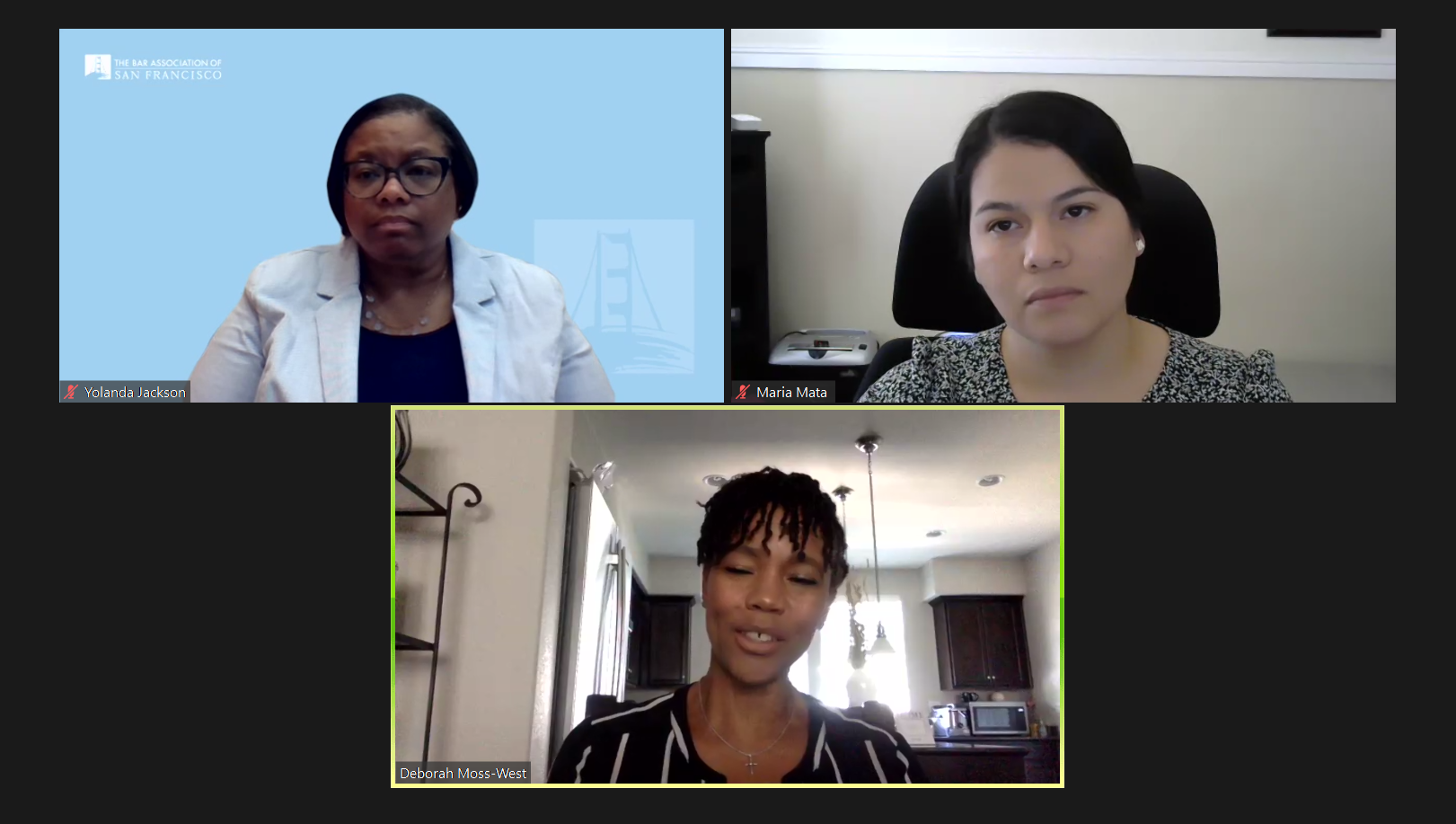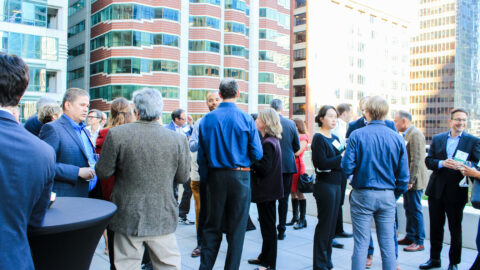In June, Justice & Diversity Center (JDC) Executive Director Yolanda Jackson and Director Gloria Chun shared their perspectives, research, and experience during parts one and two of a four-part remote speaker series for law students.
On June 11, on the topic of “Doing This Work Now”, Gloria Chun shared what it is like to help clients at this time of heightened anxiety, uncertainty, and unrest. The people JDC serves— families, immigrants, survivors of domestic violence, people who are unhoused or at risk of losing their home—are disproportionately impacted by COVID-19. Many were struggling before the public health and economic crises began and are fearful about the future.
Gloria shared the predicament of roommates who lost their jobs as businesses started to shut down due to COVID-19. Making matters worse, their landlord wanted them to move out. They were suddenly faced with the prospect of being jobless and priced out of their neighborhood in the middle of a pandemic. JDC was able to negotiate more time and resources, easing the roommates’ fears.
People who experience violence at home are also at much heightened risk when they are sheltered in place with their abusers. Escalations of violence happen more frequently with the added pressure of being stuck indoors, often in crowded conditions. Gloria shared the story of a client who was so terrified of her partner that she fled with her children to another state, which normally would have resulted in emergency custody to her partner. JDC helped our client obtain full custody and a restraining order against her abusive partner.
The need for help continues to grow, while the pandemic makes it more challenging to reach and serve clients. JDC staff and volunteer attorneys respond by being inventive and incredibly resilient. When clients don’t have access to a scanner or copier to share documents that are part of a case, attorneys are resourceful with the tools at their disposal. JDC is also learning to onboard and train new attorneys remotely, and to use remote tools to support each other during this crisis. At a time when many people who work from home feel the heightened stress caused by the lack of work-life separation, public interest attorneys feel the additional burden of secondary trauma at home.
On June 25, during the second remote speaker series, Yolanda Jackson joined a panel to discuss “Navigating Bias”. Jackson shared data from State Bar and Legal Aid Association studies that highlighted persistent inequities in race and gender among California’s legal profession. The private sector, where 96% of lawyers practice, is the least diverse, while women and attorneys of color are more represented in the legal aid sector. However, even within the legal aid space, leadership positions are still disproportionately held by white attorneys.

co-host Deborah Moss-West during the June 25 event on Navigating Bias
Following a look at data, Yolanda presented information on the neuroscience behind bias and how to detect and disarm our own individual biases. Cognitive bias, as a physical function of the brain, results in mental shortcuts that are subconscious and persistent. Identifying and navigating our bias requires exploring triggers, learning to self-reflect, and listening. These are difficult but crucial tasks in a fast-paced, demanding profession where bias can impact hiring, retention, representation and access to justice.
The speaker series was hosted by Berkeley Law’s Field Placement Program, JDC, Santa Clara Law’s Katherine & George Alexander Community Law Center, and OneJustice.



